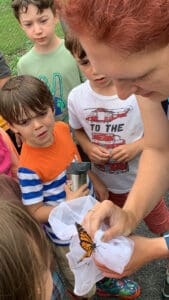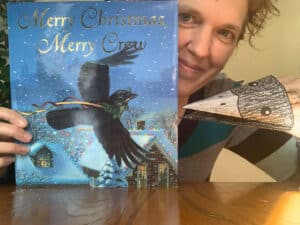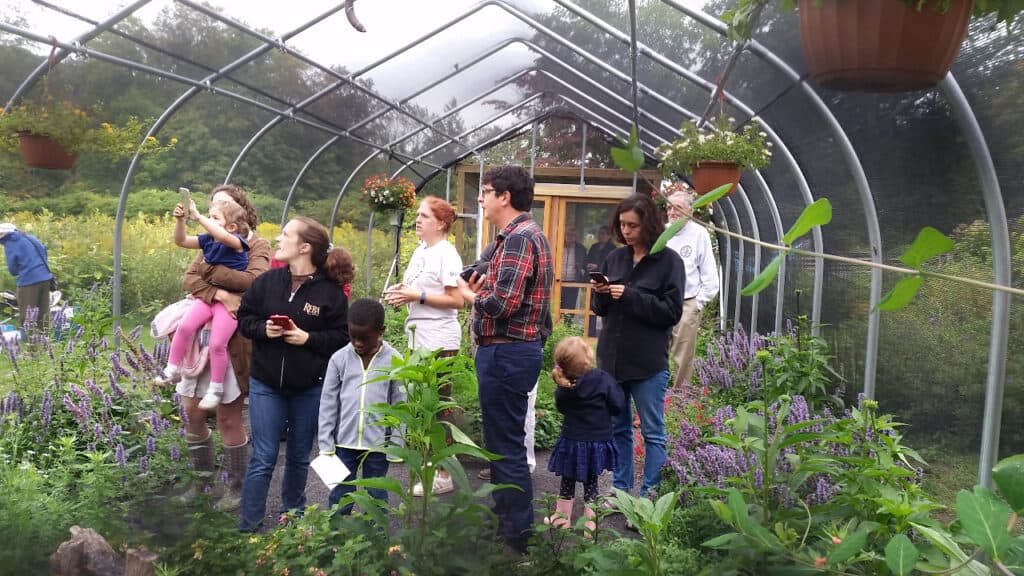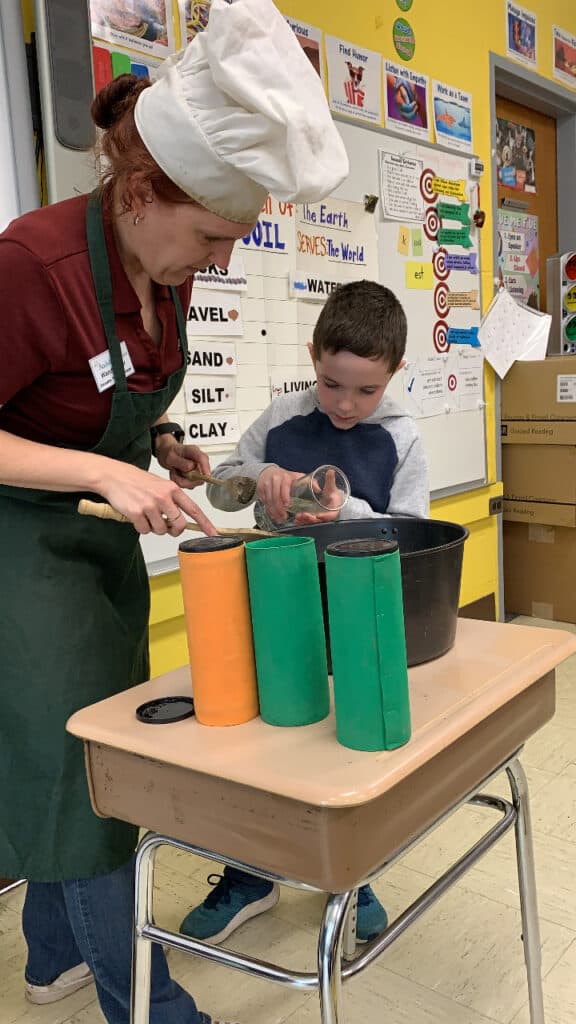-by Wendy Miller, Education Program Manager at Sharon Audobon Center
It was the middle of sugaring season when the world seemed to shut down last year. Two school field trips to the Sharon Audubon Center in Sharon CT (SAC), for a sugaring program were cancelled that day in March — as well as every one after. Nobody knew at the time how crazy things were going to get over the course of the next year. Teachers scrambled to begin a new world of online teaching and I wanted to help, especially when so many of those teachers supported our Center programs year after year, and now, all end-of-the-year field trips and special programs were halted. I immediately went to work from my own home. Since our Center had been shut down, I began creating several new programs and adapting old programs to accommodate individual students in their new home school settings. Since many of our programs involved group games and activities, I made the slides and programs as interactive as possible, to allow the kids to be engaged the entire time and not just sitting staring at a screen. In the spring and fall of 2020, I taught 29 virtual school and scout programs, reaching over 1800 kids and over 250 adults. I taught two additional in-person, outdoor socially distanced programs in school courtyards as well. Program topics included soils, rocks, trees, birds, animal signs and habitats, winter bird identification, a winter puppet show (animal adaptations) and more. One program in particular, called Birds of Winter, includes a hanging tube feeder and a small bag of mixed seed that the students put up outside their classroom. After learning simple identification tips, the students are given basic checklists (with pictures for easy identification) and encouraged to identify and count what they see and then submit their data to community science programs such as E-bird, Project Feeder Watch and iNaturalist.

Over the summer, I partnered with eleven local parks and recreation departments to create five different nature scavenger hunts that were sent to participating families in those communities over a four week period. They would complete the hunts by going outside and identifying birds, insects, habitats, and more and submit them for prizes. Because all in-person Audubon camps were cancelled for the summer, I took the lead on writing and implementing a virtual summer camp, and taught alongside three other colleagues from Audubon CT. The virtual program, which had both live and recorded segments, outdoor walks, live animals and crafts, was a great success and attracted children from all over Connecticut, Massachusetts, New York, Virginia and Texas! I am currently spearheading meetings between Audubon CT and NY summer camp educators, along with National Audubon Society management, to discuss what an in-person summer camp may look like this coming summer.
When Audubon Kids’ Day was cancelled in the fall, I came up with the idea of a Pumpkin Trail, which was well-received by the community and was the start of our monthly self-guided trails at the Sharon Audubon Center. People were invited to carve or decorate pumpkins and drop them off at our center. Those pumpkins were placed along a trail for visitors to come see. Every child that submitted an entry received a small gift package for participating. I have continued partnerships with local land trusts as well as our local Audubon Chapter to secure funding for programs in order to reach more children in our urban and Title-One schools, and plans are underway with students at Torrington High School for a collaborative native plant sale this spring. Before the holidays, our center partnered with the town library for a virtual book reading. When no registrations were coming in through the library, I reached out to local schools and individuals and ended up doing three different readings with related craft projects for roughly 264 kids (classrooms, remote learners and home-school students) because it was so popular!
Aside from this work, my nine year old son and I started creating a series in March called Nature Tidbits-Nature for Kids by Kids, in order to get kids outside and away from screens while exploring their own backyards. The episodes (all 20 hosted by my son) were posted on SAC’s Facebook page weekly and the series was used by teachers in classrooms around the local area and even in other states as part of their science curriculum. I love teaching, I love being in the classrooms with the teachers and the kids, and I love leading a group of children out into the woods, fields and ponds for an exploration in adventure. It’s hard not being there in person with the kids, but I’ve tried hard to bring that same experience to them as best as I can via computer. If I can make them feel, even if for a minute, that they are not looking at a Smart board, but rather immersed in and excited about nature, then I am succeeding.

Wendy was recognized at the Connecticut Outdoor and Environmental Education Association (COEEA) annual (virtual) conference on March 15.
This recognition is awarded to an Environmental Education (EE) professional or classroom teacher who creates and implements successful EE activities; promotes individual and societal environmental responsibility; and inspires others to take action through individual or group projects at a school or within the local community.
Originally from Quarryville, Pennsylvania, Wendy joined the Sharon Audubon Center staff in September 1997. Currently, Wendy oversees the booking of Sharon Audubon Center’s school program and hiring and supervising of education interns, develops summer nature programs, writes and teaches programs on and off-site, as well as contributes to the development of center communications. Wendy lives in Torrington with her husband Louis, two sons, and their dog Suzy.


